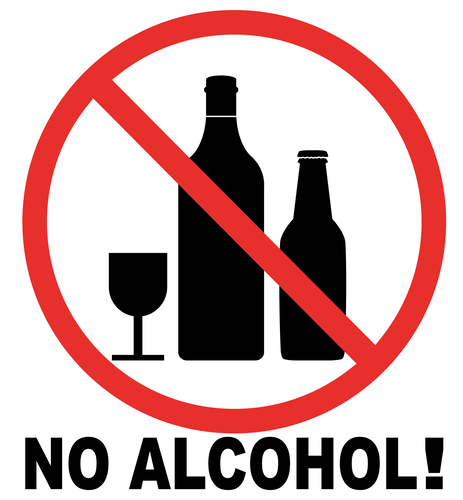If you’re allergic to alcohol, the best way to manage this is to avoid consuming it entirely. It’s also crucial to read food and medication labels as some may contain alcohol. In case of accidental consumption, seek immediate medical attention to treat potential severe reactions. The first step in managing an alcohol allergy is understanding the condition. Allergies, including alcohol allergies, are exaggerated immune responses to harmless substances, or allergens. Therefore, it’s essential to know your triggers and monitor your body’s reactions to different types of alcohol.
What Is the Difference Between an Alcohol Allergy and Alcohol Intolerance?

While alcohol intolerance symptoms commonly occur with ingestion, they’re unlikely to manifest from sanitizer use. However, if you have a confirmed severe alcohol allergy, you should exercise caution and consider non-alcohol alternatives like benzalkonium chloride-based products. Yes, you can develop sudden onset alcohol allergies in adulthood, even after years of drinking without issues. While true alcohol allergies are rare, your immune system can change as you age, potentially triggering new adult allergies to alcohol or its components.
- If you experience discomfort digesting alcohol or symptoms post-consumption, it’s more probable you’re dealing with alcohol intolerance.
- If you experience symptoms of anaphylaxis after consuming alcohol, seek immediate medical attention.
- If you are allergic to alcohol, it’s important to avoid all types of alcoholic beverages and any food products containing alcohol.
- If you choose to drink anyway, limiting your consumption or choosing drinks with lower alcohol content may help prevent symptoms from occurring.
- Common symptoms of alcohol intolerance include skin flushing, nasal congestion, and headaches.
Red, Itchy skin
Mark brings a wealth of knowledge and experience to the Daily Health Cures editorial team. He is a natural health advisor and provides a variety of alternative healing techniques in his practice. People with sinus problems can have more difficulty with alcohol as compared with people who do not have sinus problems. Swelling along with difficulty swallowing and breathing, low blood pressure and dizziness can take a trip to the ER to quickly relax your muscles. On a side note, beer is not gluten-free, which can be a problem for people with a digestive intolerance or celiac disease.
- To your kidneys and liver, alcohol is essentially a toxin, compounded by its richness in sugars.
- More research needs to be done before conclusive evidence of a cure can be presented.
- A sudden intolerance to alcohol is possible if you begin using a medication that causes alcohol intolerance or develop a disease that causes it.
- As always, speak with your doctor about any concerns or questions regarding your health.
What Are the Risks of Alcohol Sensitivity?
High acetaldehyde levels increase your risk of cancer, making it best to avoid using alcohol completely if you have alcohol intolerance. Accompanying the symptoms of alcohol intolerance will be a rapid heartbeat. This may not be noticeable unless you actually feel your pulse; however, some people can feel their heart beating faster. This rapid heartbeat is not typically dangerous unless an underlying health condition exists. One of the primary symptoms of alcohol intolerance is facial flushing.
Health Conditions
If you frequently encounter these symptoms, consulting with a how to know if you have alcohol intolerance healthcare professional for personalized advice and potential dietary adjustments is recommended. Noticing these symptoms after enjoying a modest quantity of alcohol—well below the threshold that would lead to nausea from overindulgence—suggests an underlying intolerance. There are other potential causes, such as the onset of certain health conditions, especially some types of cancers, that can significantly impact the body’s ability to process alcohol. These conditions can reduce enzyme efficiency or cause changes in the body’s reaction to toxins, leading to a sudden intolerance to alcohol where none was evident before.
How Can One Prevent Alcohol Allergy?
If you have histamine intolerance, you may experience worse symptoms after consuming alcohol with a high histamine content. In people with alcohol intolerance, a genetic mutation (change) makes ALDH2 less active or inactive. Acetaldehyde starts to build up in your blood and tissues, causing symptoms. If you have an alcohol intolerance (or a lowered tolerance) but are struggling to give up alcohol, get in touch with Ria Health for further advice and guidance. By being mindful of https://azuay.es/15-signs-your-body-is-telling-you-you-re-drinking-2/ the foods you consume in addition to avoiding alcohol or limiting your consumption, you may be able to manage your symptoms more effectively. As always, speak with your doctor about any concerns or questions regarding your health.
«Development of hives or red bumps is commonly due to a reaction to histamines that can’t be broken down,» says Dr. Glatter. It’s the inability to metabolize these histamines that can cause an Halfway house allergic reaction or flare-up, he says. Levels of histamines vary based on alcohol, but they will be in higher concentrations in beer and wine (especially red), he says.

Signs & Symptoms of Alcohol Intolerance or Allergy

Alcohol intolerance can be a frustrating and potentially dangerous condition. If you’re experiencing sudden onset alcohol intolerance or allergy-like reactions to alcohol, it’s important to talk to your doctor. They can help you determine the cause of your symptoms and provide you with appropriate treatment. By managing your symptoms and avoiding alcohol, you can help keep yourself safe and healthy. It’s important to speak with your doctor if you’re experiencing symptoms of alcohol intolerance and to avoid drinking alcohol until you’ve determined the cause of your symptoms.
